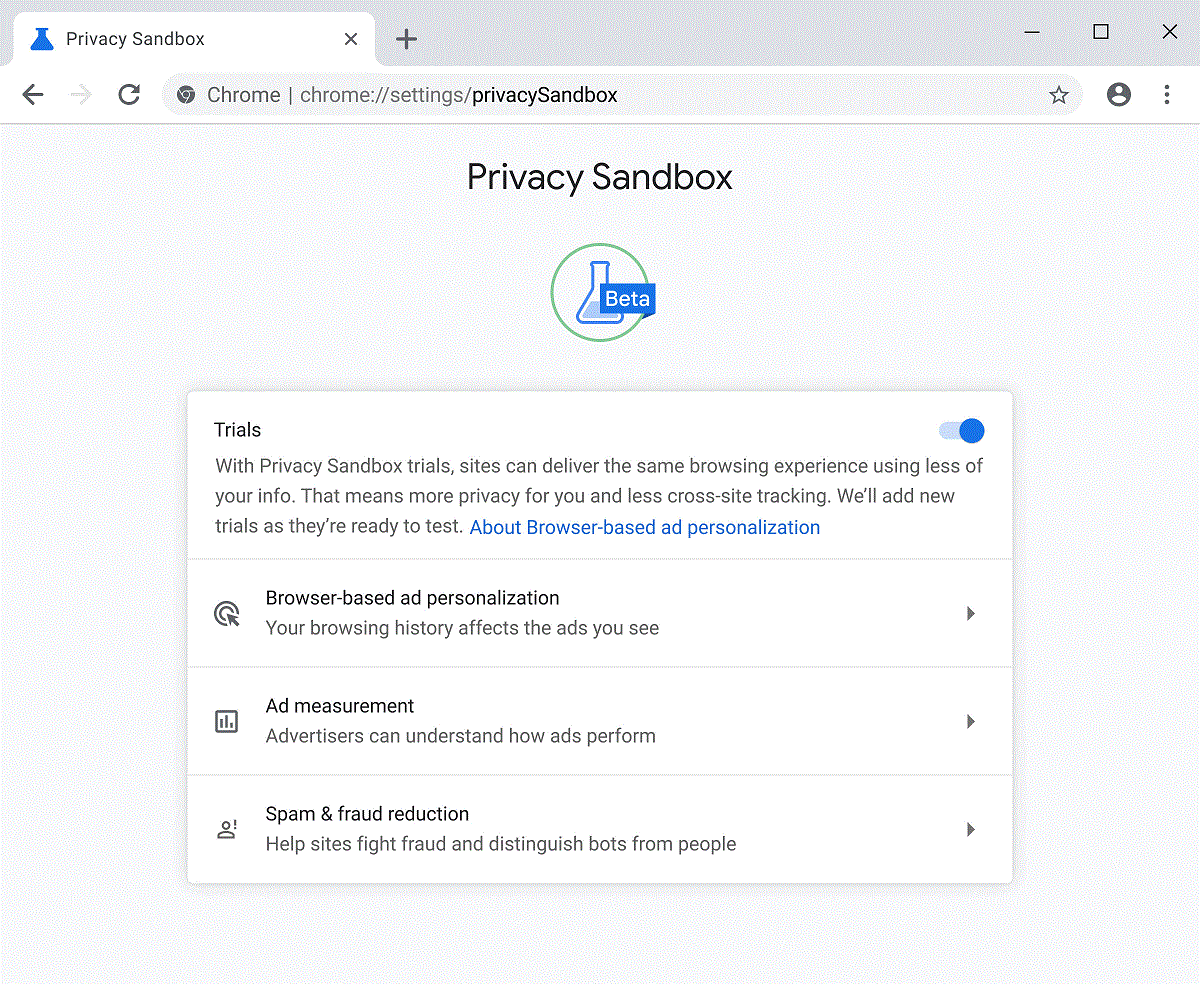
During the past year, FLOC, the controversial Google project He gave a lot to talk about since many developers, companies and even renowned projects opposed to this new technology that Google was trying to introduce to replace cookies with interest-based advertising by grouping users into groups of users with comparable interests.
Instead, Google announced a new proposal called "Topics", in which the idea here is that your browser learns the user's interests as they browse the web. This will allow the browser to retain data from the last three weeks of browsing history, and from now on, Google will limit the number of topics to 300, with plans to expand this over time. For sites that haven't been ranked before, a lightweight machine learning algorithm in the browser will take over and provide an estimated topic based on the domain name.
Google has announced to developers that they can now test Topics in the canary version of Chrome.
“Starting today, developers can start testing the Topic Reporting, FLEDGE, and Attribution APIs globally in the canary release of Chrome. We will be moving to a limited number of Chrome beta users as soon as possible. Once everything is working properly in the beta, we will make API testing available in the stable version of Chrome to expand testing to more Chrome users.
“We recognize that developers will need time to use APIs, validate data streams, and measure performance. We look forward to feedback from companies as they go through the various testing phases, which will allow us to continually improve the APIs. Once we're sure the APIs are working as intended, we'll make them widely available in Chrome, allowing more developers to come on board, test, and provide feedback as we continue to optimize them for their use cases.
“Developers can expect support from Chrome in the form of developer guidance, regular updates, and a variety of engagement and feedback channels. We strongly encourage developers to share their feedback publicly and with Chrome, and we'll closely monitor progress along the way. We also appreciate the role that industry associations can play in this process, from facilitating collaborative industry testing to adding comment topics.
Chrome will also start testing updated settings and controls. Privacy sandboxes that allow users to view and manage the interests associated with them, disable testing entirely."
The topics will allow Chrome to track browsing history locally and create an interest list, which Chrome will then share with advertisers whenever they request ad targeting.
The FLEDGE API is responsible for both running an advertising action directly on your device and selecting an advertiser and then targeting users based on their behavior, such as leaving an item in a shopping cart. The Attribution*Reporting API is responsible for measuring ad clicks, impressions, and tracking purchase conversions.
In addition to setting up the first version of the system for advertisers, Google's post also gives us an idea of what the user controls will look like.
There is now a chrome://settings/privacySandbox page, where you can enable or disable the trial version. The “browser-based ad personalization” page lets you see the topics that Chrome thinks you're interested in, and you can remove the ones that you don't.
Again, this is just for the experimental Chrome Canary browser, which nobody uses as a daily browser, so it will be a while before most people see these commands.
Finally for those who are interested in knowing more about it, you can check the details in the original post In the following link.